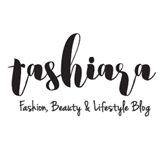Postpartum hair loss and all you need to know!

Dear ladies reading this article, it is with much respect I congratulate you all on going through one of nature’s most beautiful transformations we women are blessed to experience! And it is with this dramatic and beautiful change does our body endure an astonishing array of hormonal and emotional changes, which also includes postpartum hair loss. Women around the world often worry about this extremely common and very temporary ailment and although it might seem extremely worrisome the facts behind this very natural occurrence would definitely lay your mind to ease.
What is Post Pregnancy Hair loss and what really causes it
As many of you may notice that during pregnancy many incur physical changes, from weight gain, skin breakouts while some experience a beautiful glow in their complexion and quite welcomingly many women also are blessed with a thick and luscious mane of hair, which of course does change post pregnancy and can be quite distressing, but let me assure you it’s completely momentarily. Here is all you need to know about the cause behind Postpartum Hair loss.
Post pregnancy hair loss and bald spots, will it grow back?
The increase of oestrogen levels in the body provokes your hair to go into its ‘resting phase’ of the hair growth cycle which is called Telogen and Anagen is the term for the growth phase which temporarily ceases due to extreme hormonal changes. While some mothers experience an overall thinning of hair, in many cases the hair falls out in clumps leading to small bald patches. Postpartum hair loss usually starts around 3 months after birth and this is quite a common occurrence and shouldn’t be a cause to deter your peace of mind while you are nurturing your little one. The good news is that the Telogen phase lasts only 6 to 8 months for normal mothers and most women return to their usual hair growth cycle between 6 to 12 months after birth. However, it being completely a hormonal issue, for some mothers that are dealing with deficiencies or an ongoing illness it would remain persistent and it may be caused due to anaemia or in some cases portpartum thyroiditis then its always advised to consult a doctor for better guidance in dealing with this minor ailment.
The proper hair care routine for Postpartum hair loss
As all recommended hair routines which would include regular oiling and shampooing with a product most compatible with your hair woes, So, is when dealing with Postpartum hair loss, the routine is quite similar but choosing the right oil and shampoo is extremely essential in keeping Postpartum hair loss to a minimum.
Postpartum hair loss shampoo, what to choose!
Hair care experts recommend that using a shampoo rich in Biotin and Collagen helps control the thinning of the hair, these products are known to be quite expensive and not easily available for many. Argan Oil, is rich in Vitamin E and known to promote hair growth and does have ability to normalise shedding of hair, keeps dandruff at bay as it moisturisers the hair just the right amount and gives you that volume you so ardently need. Shampoos rich in Argan oil is recommend as they are easily available and doesn’t pinch the pocket. Oiling being just as imperative to your hair care routine, its highly recommended that you use oils that are blended with coconut, olive or almond oil for best results, always gently massage your scalp for 5 to 10 minutes as this helps with the blood circulation.
Myths vs Facts of Postpartum Hair Loss
Myth 1: After childbirth, your hair will fall out!
Fact: Yes and No! Due to hormonal changes in the body during pregnancy, you begin to produce high amounts of oestrogen and progesterone (to name a few) which initially has a good effect on your hair meaning it encourages the Anagen phase to occur. After childbirth the hormone level dramatically drop almost 3 hours after labour, which means a lot of changes again start to happen to your body, which then many start suffer from what they call the ‘Baby Blues’, this physical and mental shock changes the Anagen stage into Telogen state, hence the hair loss.
Myth 2: Your hair won’t fall out until you stop breastfeeding
Fact: No! Post-Partum Hair loss is caused due to a hormonal imbalance which triggers the Telogen effluvium to occur, which usually happens the time new moms are breastfeeding. It has never been proven that breastfeeding has an effect on hair loss after giving birth.
Myth 3: You shouldn’t colour hair during pregnancy
Fact: No! There is not scientific evidence that proves that chemicals in hair dyes affect the foetus or affect your hair post-pregnancy. However, it is always suggested to be careful as these chemicals transfer themselves from the skin, so if you still choose to colour your hair it is recommended to use natural colourants like henna or if necessary stick to highlights that don’t make contact directly to the scalp when applied.
Myth 4: There is nothing you can do about Postpartum Hair loss
Fact: Almost true! As you can’t change a very natural hormonal function from occurring but you can fortify your body with the right minerals and vitamins. Keeping a good Iron level is essential, so its also important to eat a healthy diet rich in protein and iron and always try to get a good night’s sleep.
Indian home remedies and do’s and don’t while dealing with Postpartum hair loss
Little efforts you do, can make this tricky phase pass by easily, eating a healthy diet is imperative to normalise this phase as much we can. Adding flax seeds to your diet is very helpful as they are rich in Omega-3 as well as eating Dry fruits and drinking plenty of water this help control the severity of Postpartum hair loss.
Amla or Indian Gooseberries are brilliant for controlling hair fall, simply boil 4-5 dried gooseberries in 1 cup coconut oil until the oil turns black, when cooled apply on the scalp and then shampoo after 20 minutes. Methi or Fenugreek seeds works wonders in enhancing hair growth and rebuilding the hair follicles while making you hair shiny and strong. All you need to do is soak the seeds overnight in water and make a paste and apply it evenly on your scalp and the entire length of your hair to the tips, then rinse with cold or mildly lukewarm water depending on the weather.
Do’s and don’ts!
As we know, we have no other option but to pass through this phase of Postpartum hair loss, finding simple solutions in dealing with these hair and scalp woes can definitely help us get past these days less stressfully. Postpartum hair loss vitamins and recommended diets!
Do’s: Maintain a healthy diet of nutritious fruits, vegetables that are rich in iron, Vitamin C and Beta Carotene and proteins such as Eggs for Vitamin D and Fish for Omega-3 and magnesium. Additional Vitamins as prescribed by your doctor, help tremendously if you are not able to maintain a balanced diet.
Don’ts: As your hair and scalp are at a fragile condition it is best to avoid using hair dryers, curling irons or hot rollers in attempt to give your hair more body, brushing too hard can cause hair to fall out in bigger clumps so try to stick to brushing your hair just once a day.
And… always remember ladies, although this transitional stage can be quite stressful, there is always a silver lining to it all, which the most beautiful accomplishment any human can achieve that is to bring new life into this world and as soon as this phase passes you by, the precious moments of motherhood soon fades away this little ordeal all women go through. And remember there is always a salon near you that you can visit and treat yourself to a new look for your lovely locks that would make your hair easier to handle, until they start getting back into their groove and I assure you, they will!
Happy Healing Ya’ll !!!









You are great! The blog gave me great relief and gave the right information on healing the thing.
But most effective writing is the last para of the blog. That touches my heart